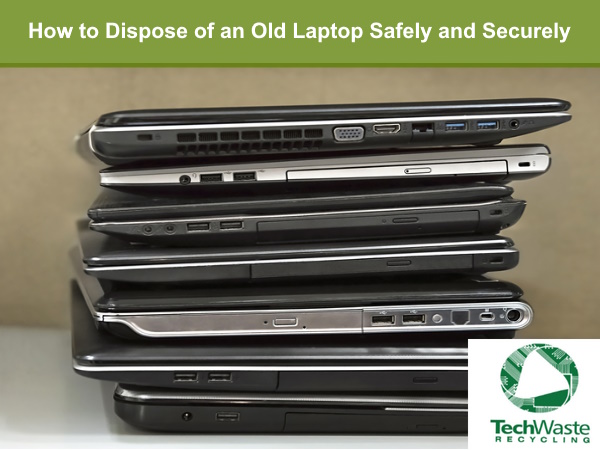When a laptop is discarded improperly, it can have severe environmental and health consequences. For example, your data may fall into the wrong hands and be exposed if you simply throw away your old laptop. Even worse, it can end up in landfills, release rare earth elements, and cause environmental and health damage.
Hazards of Improper Laptop Disposal
Environmental Factors
The improper disposal of electronic waste (e-waste) can contaminate water, air, and soil, resulting in adverse health effects. Recycling your electronic waste, on the other hand, conserves energy because recycling requires significantly less energy than mining for new materials. Carbon emissions are reduced through recycling, which is another advantage.
In addition, it conserves our natural resources by allowing us to reuse unwanted materials instead of mining for more. This also protects the environment, as no land excavation is necessary to gain access to the raw materials.
Health Hazards
Electronic waste, such as a discarded laptop, consists of potentially hazardous components. E-waste consists of potentially hazardous components, such as a discarded laptop. Unlike other materials, the plastics in your electrical gadgets do not deteriorate. They deteriorate into microplastic particles. If consumed, these particles are extremely toxic to plants, animals, and humans.
Furthermore, the metals contained in your devices pose their own risks. As they decompose in landfills, they oxidize and ionize into the surrounding soil and, eventually, our food and drinking water. Numerous of these metals contain hazardous chemicals that can negatively impact our health. For instance, it can result in:
- Miscarriages
- Neurological Damage
- Paralysis
- Memory Issues
- Cancer
- Coma
A Step-by-Step Guide on How to Safely Dispose of a Laptop
Your company is responsible for protecting your customers’ data and for any environmental damage, it may cause. Follow these steps to safely dispose of your laptop.
Save essential information
Before deleting anything, back up all of your content and data. There are 3 ways to save your information.
- USB Drive: There is an extensive selection of USB drives with varying capacities. USBs are typically less expensive than other storage devices, but they offer less storage space.
- Hard Drive External: With an external hard drive, you won’t have to worry about storage space. This is the most expensive option, but it is a one-time fee for the permanent storage of your information.
- Cloud-Based Storage: Cloud storage services such as Google Drive and iCloud are gaining popularity because you can access your data from any location. There is a great deal of pricing and subscription flexibility, but you must continue to pay to maintain access to your data. Back up your data in 2 locations, just in case something happens to your primary storage. This is especially important if you choose to utilize cloud storage.
Erase Data from the Hard Drive
Merely deleting files from their laptop does not mean they will be safe from hackers. Even if you delete data from your laptop, it is still stored on the hard drive. There are 2 methods for erasing data from hard drives.
Destruction of the hard disk drive.
The first option for erasing your data is physically destroying your laptop’s hard drive. There are a number of steps that must be taken to ensure that your information is deleted correctly.
Why Your Company Needs to Destroy Old Technology
Erase History
Browsers like Google frequently store your browsing history and sometimes even your login information for various websites. Ensure that you manually delete your browsing history and any saved passwords from your laptop.
Deauthorize your device.
Open all limit-based applications and deactivate the laptop. Then remove any programs that may contain your password or other sensitive information.
Recycle Your Laptop
Avoid fraudsters when recycling your device by finding a reputable recycling facility. There are recycling programs, but many of them have been exposed for exporting these donations to third-world countries. Workers, including children, in these nations, are frequently forced to scavenge hazardous e-waste for valuable components.
Electronic recycling R2-certified companies, like TechWaste Recycling, effectively and safely manage your e-waste disposal. Call us to schedule a pickup. see the areas we serve


































